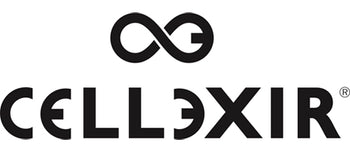Aging: what is more important, genetics or environment? - Dr. Marcus Gitterle
Turns out, the answer is actually “yes.” What? We were once taught that genetics was like the hand one was dealt in a card game: maybe good, maybe bad, but “it’s the hand we were dealt.”
What if the “hand we were dealt” could actually be changed by the environment we live in? In fact, that is very much the case, as we now know that genetics is a lot more mutable than we ever suspected.
What does this have to do with longevity or “lifespan,”, and more importantly “healthspan.” It turns out that the answer is “just about everything.”
Genes can literally be “turned on and off” based on actions we take, such as engaging in specific kinds of exercise, the type of food we eat, toxin exposures, exposure to heat and cold, and a host of other factors.
This science, called “Epigenetics” is still in its infancy, but it is already clear that it going to have sweeping changes on the way we think about health, and the actions we take to protect it.
What are some actions that we already know can have a positive impact on epigenetic factors? Let’s look at just a few of the exciting ways that we can actively modify the genetic “hand we were dealt” at birth.
The way we eat dramatically affects many of the epigenetic factors associated with aging, including mTOR, FOXO, and the Sirtuin gene system. These may sound like the acronyms you had to memorize in science class, but they are anything but academic curiosities; each of them is capable of creating a veritable revolution in our health when appropriately activated or silenced.
One of the simplest, and most powerful ways of modulating all three of these systms is with food; certain ways of eating are capable of activating or silencing these control genes, affecting hundreds of cellular processes, and literally creating cells that function more youthfully, and even look “younger” under the microscope.
One way of approaching diet that can favorably affect all three of these powerful modulators of the aging process is Intermittent Fasting. Readers of this may recall that this simple, powerful way of modifying our food intake was the subject of a recent blog entry.
Another simple, and equally powerful method for putting these genetic control systms on our side is through exercise, and particularly Hight Intensity Interval Training (HIIT), and resistance exercise.
Future blog entries will look at these exciting concepts in greater detail, to give our readers the tools needed to make sure that epigenetic factors become our trusted allies in health and aging.
References:
Claire Joanne Steves, Timothy D. Spector, Stephen H. D. Jackson; Ageing, genes, environment and epigenetics: what twin studies tell us now, and in the future, Age and Ageing, Volume 41, Issue 5, 1 September 2012, Pages 581–586



